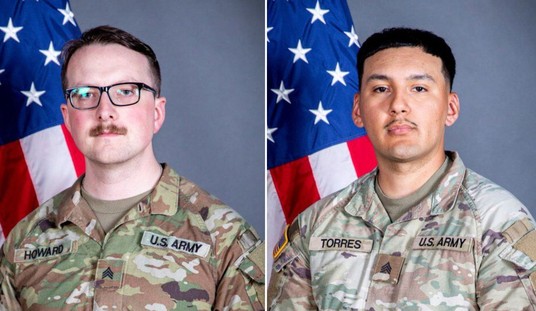The British have indefinitely postponed their pullout from Basra, and will not contemplate any further troop reductions in the near future. The UK, somewhat embarrassed by the necessity of liberating a city for which they had supposedly provided security, will take a more active role than in the last few years in flushing out the rest of the Mahdi Army militia in the South:
Britain will maintain a garrison of 4,000 troops at Basra airport for the forseeable future, whatever the pressures on the armed forces, defence officials said last night. They described the British garrison as being there “for the long term” after talks in London yesterday between General David Petraeus, commander of US forces in Iraq, Des Browne, the defence secretary, and Sir Jock Stirrup, chief of the defence staff.
It was said that the troops were needed to continue their task of training Iraqi forces and also to maintain what officials called “political credence” with the US.
After an hour’s meeting at Downing Street with Gordon Brown, Petraeus said British forces had been “invaluable” in providing intelligence, air and logistics support for Iraq troops engaged in the recent Charge of the Knights operation against Mahdi army militia elements supporting the Shia cleric Moqtada al-Sadr.
“Political credence”; at one time, people wondered about our credence with the British. British commanders openly criticized the conduct of the war, especially after the start of the surge. Now, however, with both Basra and Helmand province in Afghanistan turning into debacles over the last couple of years, the British have seen their strategies fail in spectacularly embarrassing ways, and suddenly they need to regain political credence with us.
We shouldn’t be too hard on the Brits, however; at least they have the testicular fortitude to remain in the game, unlike some of our other allies. They had the wrong idea in Basra, or rather, the right idea implemented under the wrong conditions — as did we for a while, too. They needed to take a much more active role in securing Basra and the south until the Iraqi Army could replace them. Instead, they pulled back years too soon and created a vacuum that Sadr filled.
Interestingly, this change of direction came after the announcement that Petraeus would replace Admiral William Fallon as commander of CENTCOM. It seems that his command carries a lot of weight among our allies, one of the benefits of success. Fallon’s reported differences with Petraeus may have sent mixed signals before, but the nomination of Petraeus has made American policy of aggressive engagement crystal clear.
The extension and expansion of British engagement will help Nouri al-Maliki’s central government secure its sovereignty in the southern regions of Iraq. Their forces will continue to train the green 14th Division, which had its share of problems during the liberation of Basra, as well as provide logistical and even tactical support in any continuing operations. That will help with the short-term goal of eliminating Mahdi presence, and therefore Iranian influence, and the long-term improvement in infrastructure and general confidence in the elected government.








Join the conversation as a VIP Member